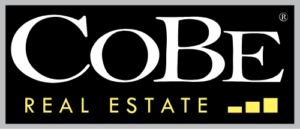Every industry has its acronyms and unless you’re in it, these types of words, letters or numbers can seem like a foreign language. But if you work with millennials in the real estate business, one term is often passed over without a moment of hesitation. If you sell property for a living and don’t bring up the subject with your clients, shame on you. If you’re a millennial and you haven’t heard about 1031 exchanges, you’re about to now. And you’ll thank COBE Real Estate for it. The reasons are a plenty.
When Millennials Fear Capitalism, There’s a Hole Somewhere
We can view Generation X or millennials as representative of the population polarization that’s evident in the U.S., and growing. It’s a strange dichotomy that converges in a single point of misinformation.
Many of today’s adults, ages 25 to 35, are gainfully employed in executive-level positions or have their own successful enterprises, making substantial incomes. They buy designer products, succumb to fine dining, and look for homes that are equally as upmarket.
Other millennials have adopted a cultural position of anti-establishment, anti-money, anti-development, anti-anything-that-seems-to-have-a-cause-against-elitism. But there’s nothing new in that, every generation has their own sense of defending perceived social injustices. And yes, immense student debt, skyrocketing rental rates, and hints of inflation don’t help.
For the well-to-do millennials and the not-so-fortunate, 1031 Exchanges impact both segments of Gen Ys. Here’s what you need to know about them and how they impact this generation, for generations to come.
What Is a 1031 Exchange
A section in the U.S. tax code allows property owners to defer capital gains tax on their real estate that would otherwise be payable upon the sale of the property. Known as Section 1031, it was originally set up as a loophole, beneficial to investors who wanted to sell real property (not personal property), avoid paying taxes, and purchase additional property – simultaneously.
Depending on the real estate market, the foundational 1031 Exchange is achievable as long as the following variables are in place:
- There is a healthy supply of property for sale
- There are many property Sellers looking to swap their property for yours
In an escalating real estate market, like we have in Arizona today and is likely to continue for the next three to four years, doing a straight 1031 swap, where the buyer wants the seller’s property and that same seller wants that same buyer’s property, is a near impossibility to realize. There simply isn’t enough inventory to choose from. But luckily, the rules of 1031 exchanges shifted, opening the door to more opportunities for more people to take advantage of and delay or lower their tax burden.
The Amendment that Changed How Far a 1031 Can Go
In 1954, the Starker family case was instrumental in magnifying the benefits of a 1031 exchange. Also known as a Starker, third-party or delayed exchange, what is now deemed as a real property swap has more legs to it, making 1031 exchanges a more desirable option for property owners who are willing to entertain a long hold.
What Does Of-Like-Kind Mean
Most people think of real estate as a specific type of building. But real estate encompasses so much more. Industrial buildings, farm land, office complexes, apartments, strip malls, duplexes and single-family homes to name a few. One of the criteria needed to fulfill the requirements in a 1031 exchange is in assessing whether the property being sold is replaced with a new one for purchase that is of-like-kind.
This doesn’t mean that someone who sells a 2 bedroom, 1 bath rental home in downtown historic Gilbert or Mesa in Arizona must buy another one of the same in an exchange. All real property is considered of like kind.
How a 1031 Exchange Works
For simplicity’s sake, we’re going to use an actual scenario that took place here in Scottsdale, Arizona. A millennial who had a great job, ample income, and cringed at the thought of having to consider owning a financial decision that affected her personally, decided to purchase a condo conversion (yes, cringe here) in 2013. Her timing was good as the market had hit the bottom. She reaped the benefits of the mortgage and property tax write-offs and all the positives of home ownership. Then something changed.
She met a young man, fell head over heels, and moved to California to see if a new life together would work. She wanted to sell her condo in 2016. After explaining the pros and cons of selling at this point and sharing thoughts on using her condo as a rental property, she decided to keep it. Two years later, the relationship soured and she is moving back to the valley of the sun with options: She can keep it as a rental property or move back in and it goes back to being her primary residence. But there are benefits and consequences with each.
Selling an Income Property without a 1031 Exchange
Once a property has been used as a rental, where you are a landlord and receive monetary compensation from a tenant, there are taxes to be paid to Uncle Sam if you elect to sell and there is equity gained in the property since you’ve owned it. Here’s a rough example:
Property Improvements Made = $16,000
Mortgage Balance = $318,000 in 2019
Property Sales Price = $424,000 in 2019
$424,000 – $350,000 – $16,000 – $58,000 taxable* gain
*In addition, as a rental property owner, there is a depreciation tax deduction that can be taken to offset your tax burden. By allowing landlords to deduct 3.6 percent of what they purchased the property for initially, gains on their investment and the taxes owed from them are reduced.
So using the instance noted in bold above, if the landlord was charging tenants $2,600 per month in rent, or $31,500 annually, and their net rental income (less operating expenses, mortgage, maintenance, etc.) was $9,000 per year, the owner could use the depreciation tax deduction to offset the income received. Take this deduction and offset it against the taxable gain of $58,000 and the capital gains drops to $49,000. At a 20 percent rate of income tax, the owner would have to pay roughly $10,000 in taxes upon the sale of the property.
This may not seem like a lot of money now but aren’t there other places you’d rather put $10,000? Let’s see what could happen if that same millennial investor decides to sell that property using a 1031 exchange.
The Benefits of 1031 Exchange Begin with the Millennial Starter Home
Because the best laid plans in life can change, and always do, owning real estate and understanding how a 1031 exchange can help during unexpected changes will give millennials and their real estate representatives an edge to the future.
Like the young lady referenced earlier, if she chooses to sell her rental condo by using a 1031 exchange, she will basically buy herself some time to find another property and move her equity from her condo into the next property without her hands ever touching a single dollar from it. And that’s the point of a 1031 exchange – you don’t pay tax on the equity you never touch.
Basic Provisions of a 1031 Exchange
- Sell your rental property
- Use an Intermediary and/or Escrow Company to hold your capital gain
- Identify at least 3 replacement properties you are considering to purchase, put it in writing within 45 days of the sale date of your current rental property
- Purchase one of the properties identified on your list and close the sale within 6 months of the sale date of your old property
- You can always purchase more (value and number of units) than what was sold as it’s a great way for investors to continue to buy up and expand their portfolio while deferring taxes
There are additional guidelines and nuances involving 1031 exchanges. You can always have a discussion with a COBE Real Estate Broker about how a Starker can enhance your real estate holdings and we also recommend you talk with your tax advisor.
Anyone Who Buys Real Estate Is an Investor
Many millennials are just feeling comfortable with the thought of purchasing their first home. If that’s you or know someone who is, it might be a good time to take in the larger picture about real estate opportunities and how any real estate purchase can be the key to something much bigger and worth holding onto.

